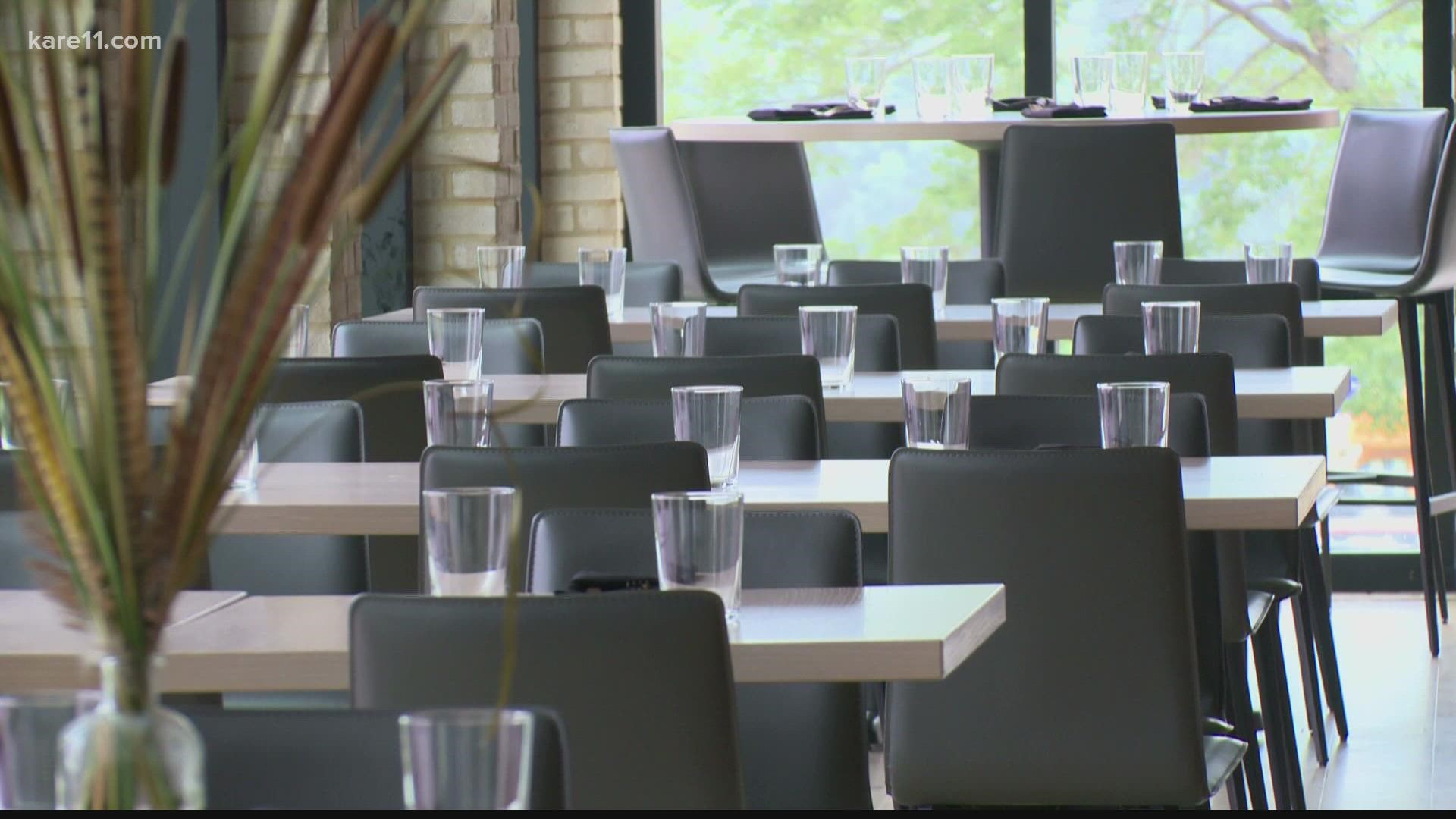MINNEAPOLIS — Even before Owamni By The Sioux Chef opened it's doors along the Mississippi River this summer, owners Dana Thompson and Sean Sherman knew there could be rough waters ahead.
"Our plan was to close the restaurant for January because we knew that it was going to be a really hard first year," Thompson said.
From the outside, 2021 appeared to be a banner year for Owamni. Within months, the restaurant made the New York Times' prestigious Best Restaurant List, earned the Star Tribune's Restaurant of the Year and Sherman garnered Esquire's Chef of the Year title.
But Thompson says all the positive press, and reservations that came with it, came to a screeching halt at the end of December. Six staff members tested positive for COVID at the peak of the holiday dining season, forcing Owamni to close down a week earlier than planned.
"When we started getting people saying that they were testing positive and that we were seeing a lot more cancellations from people who were showing symptoms, we just knew that this was the right decision to make," Thompson said. "No matter how bad the hit was."
Fortunately, she says all staff have had minor symptoms, and the planned two-week break in January will give them all the chance to get healthy.
At least eight other Twin Cities restaurants, including Bar La Grassa in Minneapolis, are set to reopen this week with shorter hours after similar staff outbreaks over the holidays.
Many more, such as Alma Restaurant, Cafe and Hotel, have managed to remain open. But after having to close down indoor dining due to an outbreak last winter, owner Alex Roberts is trying to be proactive.
"We did return to a mask-required policy when people are coming in and out of the building, but not when you're at the table," Roberts said. "And we also are requiring proof of vaccination at the restaurant now."
Owamni will also require proof of vaccination when they reopen on Jan. 19.
"We believe in public health, we believe in science and it's been generally supported by our social media community," Thompson said. "We've had some outliers — gotten some angry emails — and I understand it's really frustrating, but nothing about this is easy. We have over 75% indigenous staff members and a really high percentage of people coming through the doors are indigenous, and they are disproportionately affected by this stuff and we take that really seriously."
But both owners say they know not all restaurants can afford to go that far.
"Some people know that their business will fall apart if they do that," Roberts said. "Some people know their business may improve if they do that, depending on their clientele, so I don't think it's a one-size-fits-all. I just want to encourage people to show care and empathy for what everybody is going through."
"It's really a challenge and I would just hope that the public can have a lot of compassion," Thompson said.
Closing for any amount of time also has obvious ripple effects, especially for employees who depend on the paycheck. Thompson says Owamni does offer PTO, which has helped. She says food waste is also a huge unintended consequence of the sudden closure, and said they are still looking for a solution to that problem.
Watch more on the coronavirus:
Watch the latest reports and updates on the coronavirus pandemic in Minnesota with our YouTube playlist:

